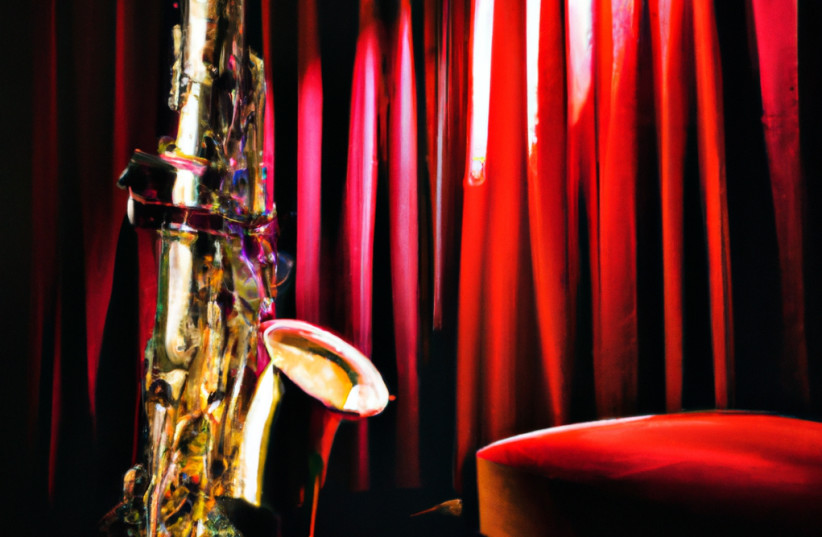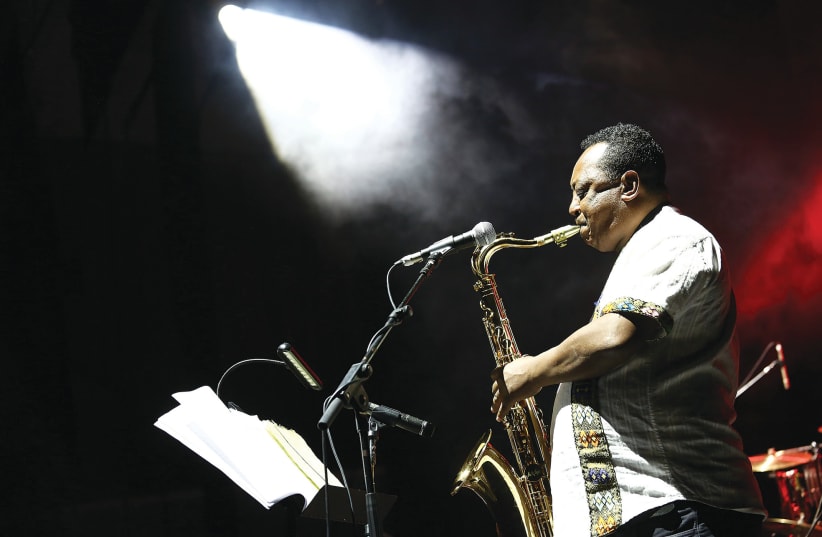Ethiopian music, and culture in general, have been gaining traction here over the years. Which is the way it should be, considering the incredibly diverse cultural melting pot this country has become as it has evolved and taken in olim from all parts of the world.
Part of that is down to the Confederation House arts venue in general, under the stewardship of its longstanding CEPO and artistic director Effie Benaya. He has championed Ethiopian artistic endeavors, through the annual Hullegeb Israel-Ethiopian Arts Festival and by hosting Ethiopian-Israeli bands and musicians at Confederation House.
The festival has provided a stage for a wide range of dancers, theater productions, and musicians. It has also brought in established titans of the Israeli entertainment scene, including the likes of internationally renowned Iraqi-rooted violinist-oud player and singer Yair Dallal, and famed bass guitarist and producer Yossi Fine.
The cause of Ethiopian Israeli performers has also been helped by the success of the likes of global star vocalist Ester Rada and popular ethio-jazz saxophonist and singer Abate Berihun (aka Abate). The latter will be on stage at Confederation House on May 16 (8:30 p.m.) with his Tesfa (“Hope” in Amharic) sextet alongside vocalist Tombola Takele, who performs under his given name alone.
The singer and the Abate outfit have been doing the rounds of the country pretty frequently since Tombola made aliyah in 2022. The Gondar-born singer was already a fixture in his country of birth before he relocated here, and the hook-up with Abate was a natural next rung on his professional ladder, and for his life in his new country.


Passion for music from a young age
He got the earliest of starters to his pathway through life when he parents decided to call him Tombola, which means “luck” in Amharic. He clearly has some natural talent and has put in an extra yard or two in developing his career, but a bit of fortune here and there does not go amiss.
Lady Luck may have had a hand in the fact that Tombola’s first instructive port of call was practically in his backyard. He could hardly have avoided it. “I started music school at the age of 11,” he recalls. “It was very near my home. I could hear them singing from my house.”
That piqued the lad’s interest and caught his young ear, and his musical dye was soon cast, with a little street-level help. “Some kids on the street, one day, asked me to sing them something,” Tombola says. “So I realized I had some talent.”
The local conservatory was his next port of call, and he began developing his vocal skills and also took classical piano lessons. He started out as one of the gang but soon made his way to the spotlight. “The other kids saw I could sing so I became the soloist,” Tombola smiles. “I didn’t know I could sing before that.”
DULY DISCOVERED Tombola went about the business of making good on his God-given gifts. He studied works by the likes of Beethoven and Mozart but also took a lead from internationally acclaimed Ethiopian pop singer Abebe Teka. “He really inspired me,” Tombola notes. “He is an international star.”
Tombola continued keeping his ears and heart open to all kinds of genres and styles, taking some jazz piano in his fourth year at the music school. Even so, he says it was the singers he followed. “I listened to jazz vocalists and singers from other areas,” he explains.
He soon took his music school-honed skills on the road, performing at night clubs and various venues around Ethiopia, and earning his keep as a professional musician for around 15 years before moving to Israel.
He says he didn’t have a clear idea of what he was getting into here, professionally, ahead of time. “I didn’t really know Israeli music. I knew Abate but not much more than that.” However, once he’d set his sights on making aliyah, he began doing some homework. “I registered to come to Israel and I had a year to learn about Israeli music,” Tombola observes. “I got into Israeli singers.”
He wasted little time tracking down Abate after he landed here and the two hit it off. “I was introduced to him and we started working together straightaway. Abate is a legend for us.”
Indeed, Abate blazed a trail for many an Israeli with Ethiopian roots. He was one of Ethiopia’s leading jazz artists before making aliyah 25 years ago. He had played with all the top visiting American acts there but had a challenging start to his life in Israel. His lack of Hebrew was a problem and he found himself earning his keep as a night watchman and washing dishes in restaurants. His problems with resuming his musical career here were exacerbated when the dish soap he used damaged the skin on his fingertips and he was unable to practice on his saxophone. Fortunately, Moshe Bar Yuda, who served as a Jewish Agency emissary to Ethiopia, and chaired the Ethiopian Jewish Heritage and Culture Association, got in on the act and got Abate some funding so he could quit his restaurant job and get back to music.
Bar Yuda also introduced Abate to musicologist Shlomo Yisraeli who arranged a shidduch between Abate and renowned new music composer and pianist Yitzhak Yedid. Together they formed the Ras Deshen duo, which delved into Ethiopian kessim Jewish liturgical music, blues, and jazz. That heralded the beginning of Abate’s musical renaissance here and he has kept his ethio-jazz show on the road ever since.
Tombola is looking to add his weight to furthering Ethiopian roots music here. “We have special scales in Ethiopian music,” he says. “I’d like to introduce Israeli audiences, and people around the world, to that.”
For now, Tombola is happy to be a bona fide member of the Israeli musical community, and to have opportunities to strut his stuff to us and keep his ears open to what others around him are up to. “There are great musicians here. There are so many world-class artists here. It’s great to be a part of that.”
The Confederation House audience should have fun as Tesfa presents Ethiopian folk melodies and iconic songs of the golden age of Ethiopian music, moving between traditional and contemporary styles. Tombola, Abate, et al will dispense toe-tapping, hip-shaking beats and sounds aplenty in Jerusalem, and impart some sorely needed joie de vivre.
For tickets and more information: (02) 539-9360 and www.confederationhouse.org
